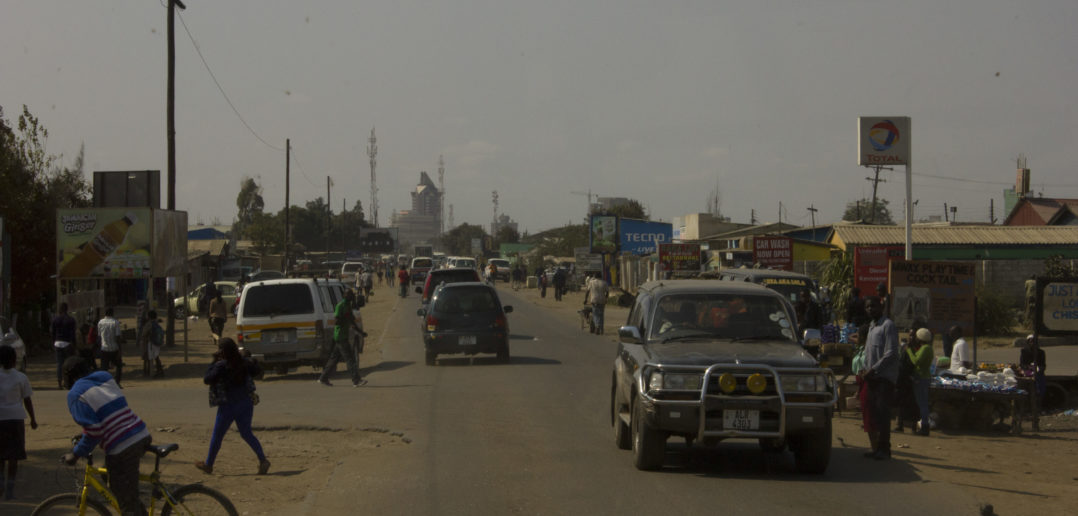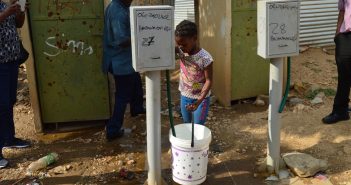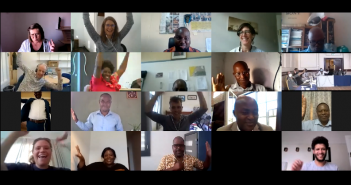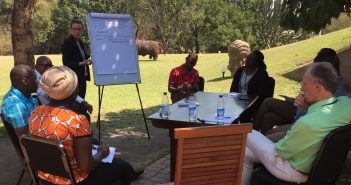During the African Centre for Cities (ACC) seminar series on cities and climate change, Chris Jack, Di Scott and Izidine Pinto offered their experiences and perspectives of important findings from the FRACTAL project.
Chris kicked things off by sharing some insights on the narrative process and distillation framework; two approaches that have been used in FRACTAL to facilitate dialogue about climate change and relevant information. He explained how the narratives have been helpful as ‘’conversation starters’’ in FRACTAL cities as they provide an opportunity for many stakeholders to offer knowledge and ideas about the future of their city in the face of climate change. Despite these benefits, he acknowledged that narratives have not been particularly useful to communicate specific climate messages to inform decision making. The distillation framework is still being developed within FRACTAL but contributes to increasing transparency of climate messages by asking questions of these messages such as; what are the assumptions that are implicit in the messages? Which data were used and why? Who’s values and ethics inform the process of distilling important messages? What does this mean for the final climate message? Chris described that we are distilling information all the time, for ourselves and to provide to other people, but are not always explicit about this process. Key to distillation in FRACTAL is awareness and engagement with the context in which information will be used or applied and how this informs the subjective decisions made in the process. An open question that emerges is how useful information can be distilled from climate data where the context for use is not known and understood.
Di spoke about the concept of receptivity that is becoming increasingly important in the FRACTAL project. This concept moves away from measuring success of climate change projects by finding ‘entry points’ for climate information in a decision-making process… Instead, important indicators of success relate to facilitating an inclusive process in which there is a conversation about the consequences of climate change and potential solutions, taking into account multiple knowledge types and ideas (including climate knowledge). The former measure of success does not contribute to improved longer term, climate resilient planning as it still indicates ‘fitting’ external knowledge (e.g. climate knowledge produced outside the city) and therefore perpetuates dependency on the part of the ‘beneficiaries’.
An observation that has been made in FRACTAL is that often, information that is produced outside of a particular city context does not land well and does not become knowledge to influence decision making. Concepts of distillation and receptivity support more inclusive conversations among stakeholders and spark debate and learning about the climate and consequences of change or variability (e.g. for whom and how severe), particularly in the context of the city. FRACTAL experiences such as learning labs enable a more effective distillation of information in context. The distillation process is strengthened by inviting multiple voices to take part in the climate conversation and, through this process, the worldviews of researchers, decision makers and civilians expand and become more receptive to different forms of knowledge. The idea of receptivity also triggers a different concept of ‘capacity building’ as researchers, decision makers and civilians learn together instead of considering one-way transfer of skills or knowledge from scientists to decision makers.
Izidine spoke from the perspective of a climate scientist working in the thick of things in Maputo (Mozambique), which is also his hometown. He spoke about the complexity of the decision making in Maputo and the history of the city learning process, which has included two learning labs and several smaller events. The three horizons approach and the development of climate narratives have been used in Maputo as ways to encourage participation from a variety of stakeholders in the planning of the city. Izidine shared his hopes that FRACTAL will influence a particular decision process in the last year or so of the project.
The conversation that followed these presentations, chaired by FRACTAL colleague Anna Taylor, touched on important points related to the difficulty of grappling with and acting on climate change in cities that requires linking research, policy-making and practice in new ways. An ex City of Cape Town official offered a parallel experience in which multiple stakeholders are currently gathering to deliberate the complexities of urban densification and affordable housing. She described the benefits she is witnessing of ‘opening up’ conversations that include multiple perspectives and move beyond combative engagements between those across public, private and civil society sectors that see the problems and the solutions in such different ways. There was a shared recognition that building momentum towards transformative change in cities requires creating spaces where people with a range of roles, responsibilities and expertise can open up to new perspectives and alternative ways of doing things.




